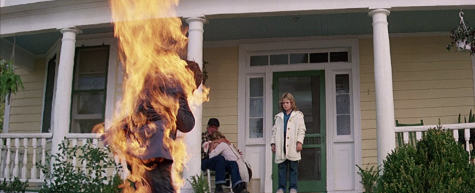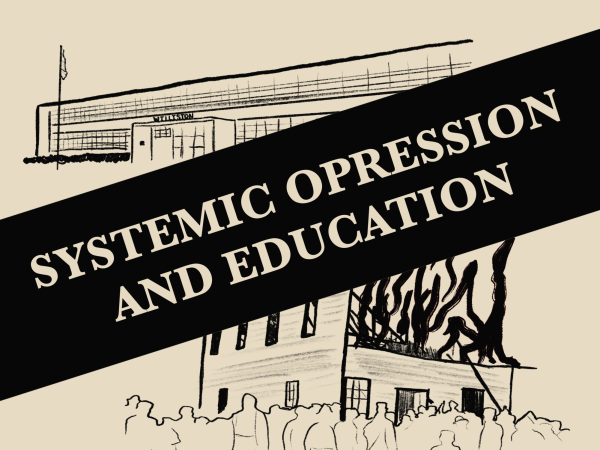Wilmington’s film industry makes a comeback after COVID-19 lockdown
Beginning in the early 1980s, Wilmington became a go–to location for many film productions—ranging from horror to crime to romance. At the beginning, producers filmed in Wilmington to capture a location that offered a small town feel as well as the opportunity to explore city skylines and coastlines. Pretty soon the streets of Wilmington and the surrounding beaches became a film set all on their own.
With Wilmington’s historical buildings and long narrow streets, combined with the feeling of a coastal town, film was just the beginning of what gave this quiet North Carolina town its nickname: “Hollywood of the East”. The land surrounding Wilmington is non-descript so the story could be set anywhere, and Wilmington would still hold its name as a perfect filming location. Being just far enough south to maintain mild weather year around, climate did not turn people away from this then quiet coastal town.
In the early 1980s, downtown streets were scattered with film production crews and writers searching for the ideal filming location for their next major motion picture. Directors stood around reviewing scripts based on books by Stephen King as this film crew prepared to produce their first film entitled “Firestarter”, a film about a young girl who acquires the ability of pyrotechnics (the ability to start fires). At the time Wilmington was a sleepy southern coastal town begging for a creative edge or a place in the art world.

Since the 1980s, many film production crews have found a way to make their stories come to life in Wilmington’s life–like Hollywood setting. Wilmington has hosted 138 feature films and 162 television productions beginning with “Firestarter” almost 40 years ago all the way to “Scream 5,” which was originally set to be filmed and released in 2020. Production for “Scream 5” was underway and on schedule until mid-March when production ceased due to a state of emergency alert for the outbreak of the coronavirus. Before COVID-19 turned cameras off in the film industry—not just in Wilmington but everywhere else too—Wilmington’s film industry drew not only actors but people who were passionate about the arts. Writers, actors, filmmakers, producers, directors all came to Wilmington with each of their metaphorical “Hollywood of the East” signs glowing brightly in the distance calling each person by name and profession.
The rapid spread COVID-19 forced film productions across the world to stop and forced millions of people out of work for months. This industry was hit hard by COVID-19 since it relies so heavily on human interaction and working together to create something. Beyond that, movies could not be released in theatres since the CDC advised the United States citizens to avoid crowded areas.
The Wilmington film industry expects to make a great return to the big screen in the second half of 2020, according to an article written in early June 2020.
“It’s going to be a crazy July, I can already feel it coming,” says motion picture Casting Director Mark Fincannon. “I think you’re going to have more auditions in the month of July than you probably had in two or three months at the end of last year.”
According to experts working in the industry, they expect a boom as production teams return to the abandoned sets of unfinished films as soon as COVID-19 restrictions are reduced. Actors will return to the screen ready to work, writers will be eager to get their screenplays on the big screen, directors will be working hard to bring written words to life as well as the moments that follow them.
Terry Linehan, a faculty member in the Film Studies program at UNCW and filmmaker himself, spoke about the impact of COVID-19 on the film industry.
“The film production industry of Wilmington has taken precautions to ensure CDC guidelines are followed by each production using the facilities. These extra measures mean that day-to-day shooting schedules are delayed for all the extra temperature taking, sanitization of equipment, and the delays these precautions take. I’ve spoken with a couple of crew members who tell me the producers are extremely vigilant and detailed about ensuring the health and safety of the cast and crew.”
The plan in the early months of 2020 was to continue the success from 2019, which was one of the biggest production years in North Carolina in five years. The local industry kicked off 2020 with production underway for several new pilots with plans for more production teams arriving in Wilmington in the Spring and Summer. COVID-19 ceased production for six months when Gov. Roy Cooper initiated his original stay at home order. People in the industry were hopeful that the coronavirus would not destroy the industry altogether.
Now, months after the original stay at home order was passed, production on a new show called “Hightown” has begun in Wilmington. The set looks a little different this time around. COVID-19 testing sites are set up around the set so actors and crew can undergo regular testing. Masks are worn at all times when the actors are not filming a scene and the production crew always wears masks during their workday. As the film industry picks back up, despite American’s broken economy and with so many people desperate for their next paycheck, the industry is offering 8,671 jobs according to the Department of Commerce.
The crippling of the film industry doesn’t only affect the job sector. Prospective students, including those at UNCW who are majoring in Film Studies, must stay vigilant and hopeful as they continue their studies.
Chip Hackler is an associate professor in the Film Studies department at UNCW. He discusses the values of the UNCW Film program that sets this program apart.
“The UNCW Film studies program is unique in that it integrates filmmaking with the study of film, since we believe those two things complement each other. I always say if you wanted to be an artist, such as a painter, would you just paint, or would it be helpful to study the history of art to see what came before you? It’s the same with cinema. Our program is fortunate to be situated in—and part of–a thriving film community that includes Screen Gems Studios, the Cucalorus Film Festival, the Visions Film Festival and Conference, and the internationally-distributed journal Film Matters, which Film Studies majors edit. Our students participate in a wide array of internships, whether locally or in NY or LA. In addition, we’ve just launched two new graduate programs—an MA in Film Studies and an MFA in Filmmaking—and the programs will be housed in brand new facilities very soon.”













